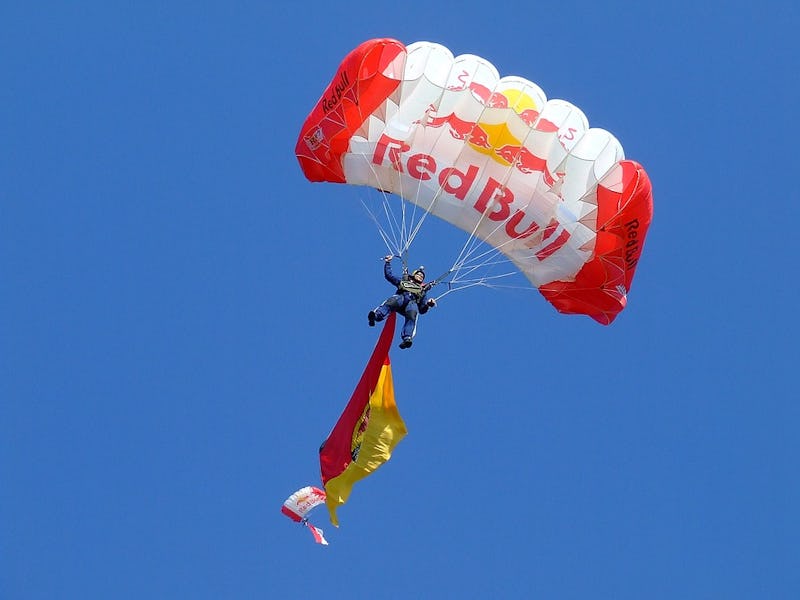Mixing Red Bull and Vodka Makes the Bad Effects of Alcohol Worse
Yet another reason to stop drinking boozy energy drinks.

Dangerous as they can be, it’s no surprise vodka-Red Bulls have stuck around since the ‘80s. After all, an increased risk of injury and heart palpitations are hardly top of mind when you’re having the best night ever on a relentless stream of party fuel. However, new research showing that it’s not just caffeine that makes those cocktails dangerous may give pause to even the fist-bumpingest boozy energy drink aficionado. Taurine, another key ingredient to Red Bull and its kin, has been shown to make the bad parts of alcohol even worse.
In a paper published in the Journal of Psychiatric Research, a team of researchers from the UK and Brazil show that the interaction between alcohol and taurine can exacerbate the “negative effects” of binge drinking. A glance outside any nightclub or bar after 3 AM illustrates what this refers to: dumb stunts, fist fights, and weird social behavior. Matthew Parker Ph.D., a co-author on the study and Portsmouth University behavioral scientist, tells Inverse that the new study was meant to explore the roots of how VRBs cause bad behavior.
“In this study we tested the hypothesis that the mechanisms by which alcohol and taurine increase aggression are through reduction in fear and social communication,” he says. Previous research by co-author Denis Rosemberg, Ph.D., showing that the mixture of taurine and alcohol causes increased aggression in zebrafish, provided some background to the study, but here the team sought to understand the mechanisms behind the aggression.
“These findings were not altogether surprising,” Parker continues. “They helped us to see with more clarity the mechanisms by which mixing energy drinks and alcohol may increase the incidence of violence and problematic behaviour.”
It's not just the caffeine that makes it dangerous.
In the past, most of the concern around mixing alcohol and energy drinks focused on the effect of caffeine, which is thought to contribute to alcohol overdose by preventing people from realizing when they’re too drunk to keep drinking. This new study looked at how adding taurine to alcohol affected the behaviors already known to be affected by drunkenness: sociability, aggressiveness, and memory.
Using levels of taurine and alcohol equivalent to those that would make a human moderately intoxicated, the team got a quarter of the 192 zebrafish in their study drunk. The remaining fish were split into three control groups: one exposed to just water, one exposed to only taurine, and the final exposed to only alcohol. Then, they watched how the fish interacted with the other individuals in their group and in response to the presence of a predator fish.
Zebrafish exposed to both taurine and alcohol took more risks and were less socially communicative than those exposed to alcohol only.
Compared to the fish in the alcohol-only and water-only conditions, the fish that got drunk on taurine and alcohol generally had fewer interactions with other individuals and were more willing to risk exposing themselves to the predator fish. In other words, the taurine-and-alcohol combo made them worse at communicating socially and more aggressive than they would have been if they were drunk on alcohol alone.
Taurine, it seems, takes the bad behavior that results from drinking alcohol and makes it worse. It’s not surprising — given what we already know anecdotally about mixing alcohol with 5-Hour Energy, cans of Monster, and Four Lokos — and even though this study was carried out in drunk zebrafish, there’s a lot we can apply to drunk humans.
“Like anything, if taken in moderation it is unlikely that people will notice huge effects,” he says. “However, if you mix energy drinks with alcohol, you should be aware that this might reduce your ability to make sensible decisions in social situations and may reduce your inhibitions, a mixture that could prove volatile in some instances.”